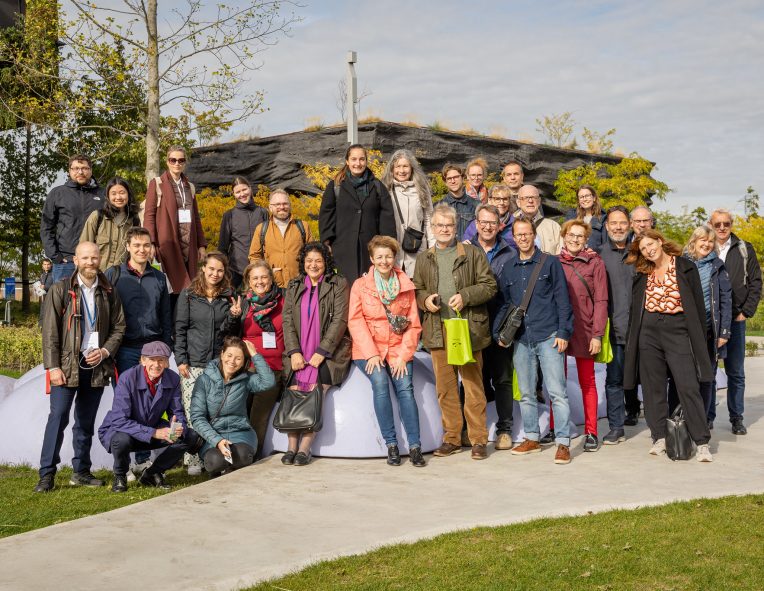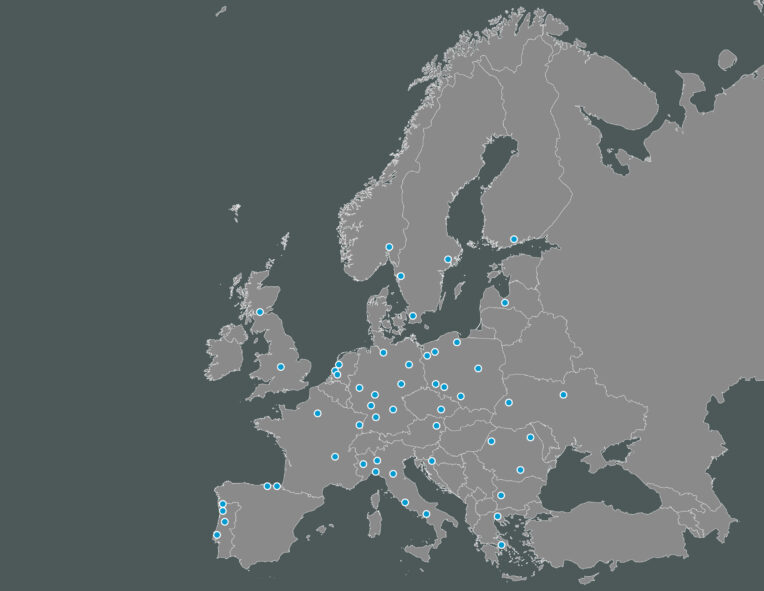METREX stands ready to contribute its expertise and network of metropolitan regions to support the EU in developing a coherent, inclusive, and future-oriented plan for affordable housing.
Background
This note was developed on the basis of accrued knowledge and analysis in the METREX Expert Group “Sustainable and Affordable Housing” (SAH). The group has been coordinated since being established in 2023 by Dr Claudia Murray at the Department of Real Estate and Planning, Henley Business School, University of Reading.
The input from METREX to the EU Plan for Affordable Housing has been prepared by professionals in the member cities and regions, under the guidance of Dr Murray. The input has been approved by the Management Committee for METREX.
The need to address affordable housing at the functional urban area level
- The Problem and METREX’s Position
Affordable housing is not only a social concern but also an economic and spatial challenge. While economic frameworks often prioritise market efficiency, spatial planning emphasises equity, sustainability, and long-term resilience. METREX believes that integrating these perspectives is essential to balance profit motives with the public interest.
A key issue is the mismatch between the scale of housing policy and the scale of housing markets. Most national and local housing policies remain municipal in scope, failing to reflect the functional interdependencies between municipalities. Meanwhile, housing investors operate at the regional level, where they assess risks and opportunities. This disconnect creates friction: regional actors face fragmented regulations, and individual municipalities lack the capacity to meet affordability targets alone.
METREX advocates for a metropolitan-scale approach to housing investment and planning. This means aligning housing provision with job locations, infrastructure, and real housing and labour markets. Such an approach supports integrated, cross-municipal strategies that improve affordability, spatial equity, and connectivity.
The metropolitan perspective also embraces territorial diversity, acknowledging the needs of rural areas, small and medium-sized cities, and inter-municipal communities. However, statistical evidence form the OECD shows that housing affordability is a significantly greater challenge in urban areas than in rural ones.
Across Europe, housing systems vary widely, from strong public provision in cities like Vienna and Helsinki to more market-driven models in Spain, Norway, and parts of Eastern Europe. EU-level policy must navigate this diversity while upholding housing as a fundamental social good.
Another challenge is land and spatial pressure. Core urban areas face land scarcity, while unchecked sprawl increases infrastructure costs and environmental impacts. METREX proposes rethinking sprawl through a polycentric strategy, transforming low-density expansion into planned, connected nodes. This approach complements compact city policies by distributing growth more equitably and sustainably.
Finally, METREX supports a conceptual shift in housing. “Imaginable housing” goes beyond affordability to include cultural identity, community aspirations, and participatory design. It encourages co-creation with residents and reflects diverse ways of living and belonging.
- Solutions and the Way Forward
To address these challenges, METREX proposes the following solutions:
- Adopt a Metropolitan Lens: EU housing policy should support metropolitan-scale planning and investment. This includes enabling cross-municipal coordination and aligning housing strategies with infrastructure and employment hubs (known as Functional Urban Areas).
- Promote Policy Coherence: The EU should build on existing frameworks like the Leipzig Charter and the Urban Agenda Partnership for Housing to promote compact, resilient, and self-governing cities.
- Encourage Polycentric Development: Support the transformation of urban sprawl into a network of interconnected towns and villages with multifunctional uses. This strategy balances compactness with equitable spatial distribution.
- Support Conceptual Innovation: Encourage imaginative housing models that integrate cultural, social, and environmental dimensions. This includes participatory planning, community housing, and indigenous forms of land stewardship.
- Implement Land Value Capture Mechanisms: Ensure that increases in land value benefit the public through mechanisms that fund infrastructure, affordable housing, and community amenities.
- Balance Public and Market-Based Models: Recognise the diversity of housing systems across Europe and promote hybrid models that combine public provision with market efficiency.
METREX stands ready to contribute its expertise and network of metropolitan regions to support the EU in developing a coherent, inclusive, and future-oriented plan for affordable housing.



